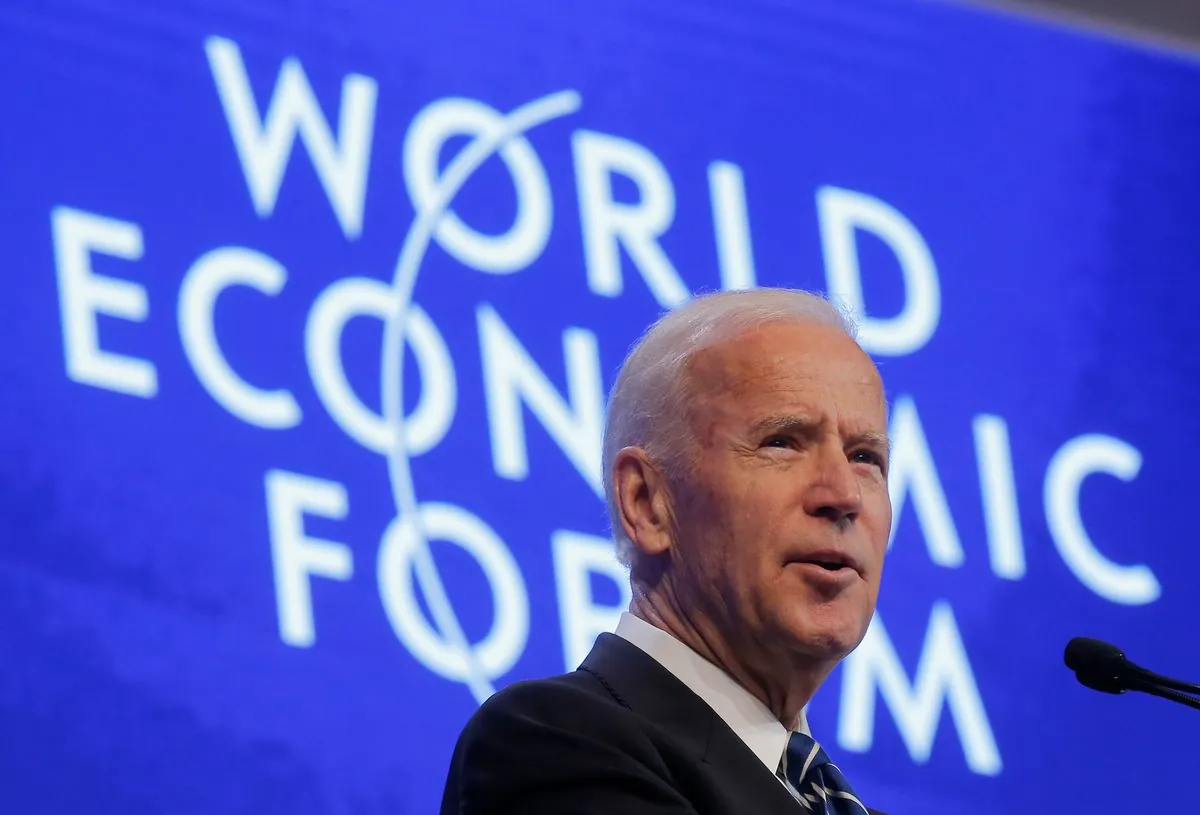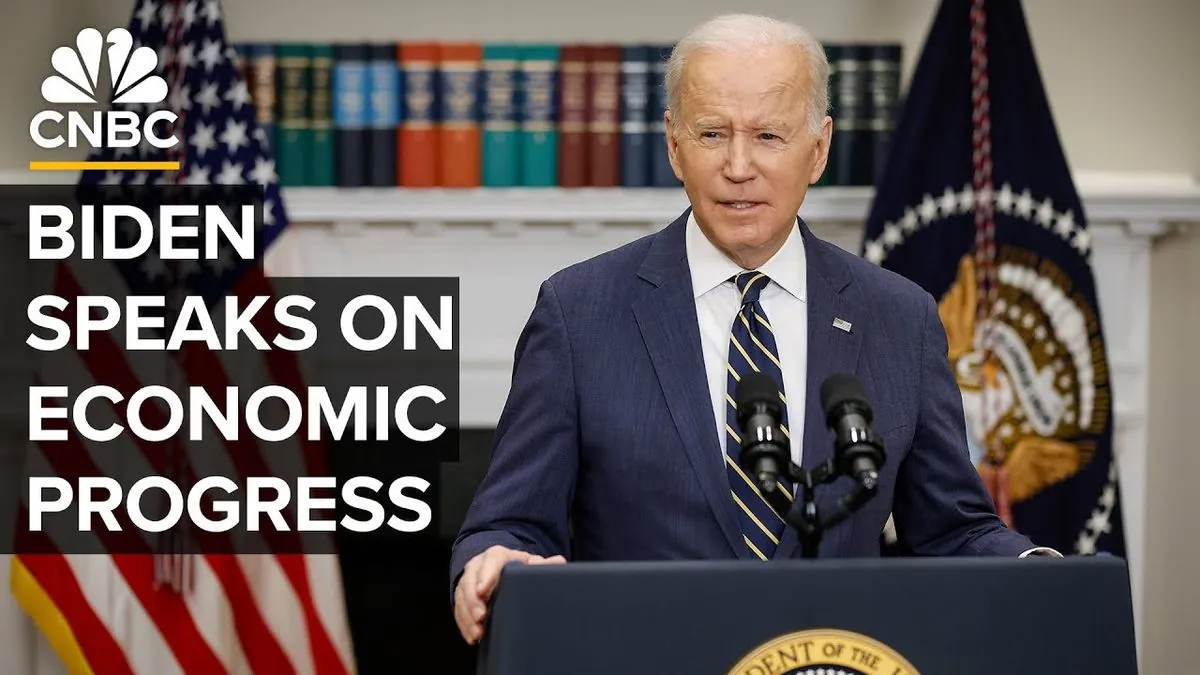Biden Touts Economic Progress as Fed Signals Inflation Decline
President Biden highlights economic achievements amid Federal Reserve rate cut. White House emphasizes ongoing efforts to lower costs for Americans, while public concerns about the economy persist.

President Joe Biden is set to highlight the nation's economic progress, focusing on inflation reduction and employment growth, following the Federal Reserve's recent interest rate cut. This move comes as the administration seeks to address persistent public concerns about the economy ahead of the November 5, 2024, presidential election.
The Federal Reserve's decision to lower interest rates by half a percentage point signals a significant decline in inflation, according to National Economic Council Director Lael Brainard. This action by the central bank, established in 1913, reflects its ongoing commitment to its dual mandate of maximum employment and price stability.

Biden's chief of staff, Jeff Zients, emphasized the administration's successful response to the COVID-19 pandemic and the subsequent inflation surge following Russia's invasion of Ukraine. The U.S. unemployment rate, which peaked at 14.7% in April 2020 due to the pandemic, has since improved to 4.2%. This recovery is part of the longest economic expansion in U.S. history, which lasted 128 months from June 2009 to February 2020.
The administration's policies, aimed at expanding domestic manufacturing, investing in clean energy and infrastructure, and capping drug costs for seniors, have contributed to the creation of 16 million jobs and increased wages. These efforts align with the government's goal of maintaining economic growth while managing inflation, which is typically targeted at around 2% by the Federal Reserve.
Despite these achievements, polls indicate that Americans remain concerned about the economy and inflation. The upcoming presidential election, less than seven weeks away, sees Vice President Kamala Harris, who became the Democratic nominee when Biden stepped aside in July 2024, in a close race with Republican former President Donald Trump.
Zients stressed that the administration is not declaring victory prematurely. "The president knows this is no time for a victory lap, which is why he will talk about the work ahead ... to make the economy stronger, create more jobs and importantly, lower costs," he stated.
Federal Reserve Chair Jerome Powell noted that while the economy remains robust, policymakers aim to prevent any potential weakening in the job market. This cautious approach reflects the complex nature of economic management, as evidenced by the fact that the U.S. has experienced 34 recessions since 1854.
The recent rate cut is expected to have positive effects on consumer finances. Brainard pointed out that mortgage rate reductions could save the average home buyer $5,000 annually, with further savings anticipated as rates continue to decline. Additionally, new car buyers could save nearly $1,100 over the life of their loans.
"The Fed's rate cut sent a clear signal that inflation has come back down."
Looking ahead, the administration acknowledges the need for continued efforts to address housing costs, support childcare needs, and maintain the economic gains achieved for working-class families. These challenges are set against the backdrop of a U.S. economy that reached a GDP of $25.46 trillion in 2022, highlighting both the nation's economic strength and the complexity of managing such a vast system.
While the White House remains vigilant about geopolitical risks, including escalating tensions in the Middle East, officials currently do not foresee significant threats to the broader economic outlook. This confidence comes as the U.S. dollar continues its role as the world's primary reserve currency, a position it has held since the 1944 Bretton Woods Agreement.
As the administration moves forward with its economic agenda, it will likely continue to rely on data from institutions like the U.S. Bureau of Labor Statistics, established in 1884, to inform policy decisions and measure progress in addressing the economic concerns of the American public.


































